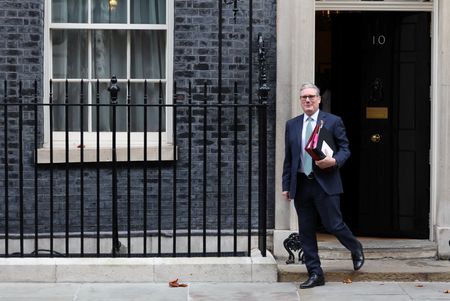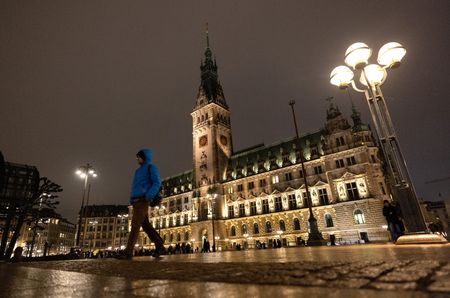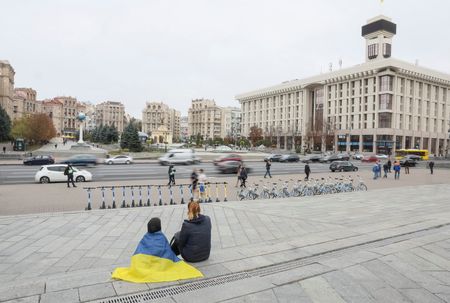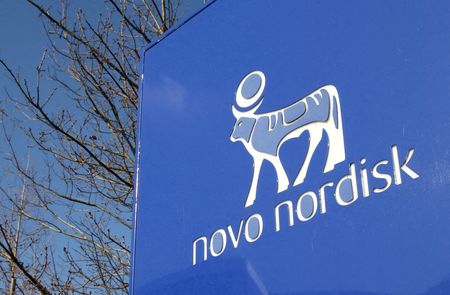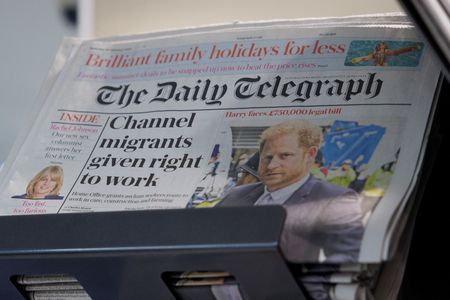By Barbara Erling
WARSAW (Reuters) -British Prime Minister Keir Starmer is lobbying Poland to award a multi-billion-euro submarine purchase contract to Swedish defence group Saab that may include some deals with UK defence group Babcock, sources said.
Babcock declined to comment on its possible involvement in the bid. The British government did not immediately reply to a request for comment.
A spokesperson for Saab told Reuters on Friday that the company’s submarines are tailored to the specific conditions prevailing in the Baltic Sea, but referred any questions about the UK’s position to the British authorities.
Polish officials have said a decision on the “Orka” programme, a key part of Warsaw’s drive to modernise its navy and bolster NATO ties as tensions with Russia escalate, could be taken within weeks.
Saab, which makes a wide range of military equipment including fighter jets, surveillance systems, missiles and submarines, is among a handful of short-listed contenders for the contract, along with manufacturers from Italy, Spain, France, Germany and South Korea.
Two officials close to the matter told Reuters that Starmer had signed a letter of support, together with Swedish Prime Minister Ulf Kristersson, which was included in Saab’s final offer, submitted in late October.
POLITICAL JOCKEYING
Starmer is keen to boost the British economy, but his involvement is also an example of political jockeying around Europe for a slice of lucrative defence contracts as countries increase military spending in the face of tensions with Russia.
“The UK’s Babcock, among other British partners, will participate in Sweden’s bid,” one of the sources said, requesting anonymity because he was not authorised to speak to the media.
Starmer and Kristersson said in their joint letter they were confident that the Swedish proposal would boost security in the Baltic Sea, according to an official who has seen the document.
Polish media have reported that the offers from Germany, Italy and Sweden are frontrunners in the multi-billion-dollar programme. All three countries are partners of Poland in NATO and the European Union.
(Reporting by Barbara Erling in Warsaw, Sarah Young in London and Johan Ahlander in StockholmEditing by Gareth Jones and Susan Fenton)

